Research
Infographic
Recognizing Faculty with Disabilities: Data and Considerations from the Faculty Job Satisfaction Survey
Drawing upon Faculty Job Satisfaction Survey data from 2019 and 2020, this piece examines meaningful differences in perception of the academic workplace between faculty with visible disabilities, invisible disabilities, and no reported disabilities.
Case Study
Supporting the Next Generation of Faculty at Georgia State University
In this partner spotlight, Georgia State University shares how the institution applied its data-driven approach to student success to the faculty experience through the administration and rollout of the Faculty Job Satisfaction Survey.
Webinar
Success After Tenure: Lessons in Engaging Mid-Career Faculty
Based on the 2018 book, Success After Tenure: Supporting Mid-Career Faculty (Stylus), this webinar highlights the impetus behind compiling the volume, as well as the successful practices put in place by COACHE partners at Rochester Institute of Technology.
Browse Resources By Topic
- Faculty Development & Support
- Diversity, Equity, & Inclusion
- Higher Education Leadership
- Recruitment & Retention
- Work Life Balance
Senior Faculty Satisfaction: Perceptions of Associate and Full Professors at Seven Public Research Universities
Citation:
Abstract:
This TIAA-CREF paper presents data from a survey of 1,775 tenured associate and full professors at seven public universities, showing that many are frustrated about leadership turnover and the corresponding shifts in mission, focus, and priorities, and also about salary. In addition, associate professors are less satisfied than full professors on critical factors such as support for research, collaboration, and clarity of promotion, and women are less satisfied than men on numerous dimensions including mentoring support for research and interdisciplinary work, and clarity of promotion.Career Stage Differences in Pre-Tenure Track Faculty Perceptions of Professional and Personal Relationships with Colleagues
Citation:
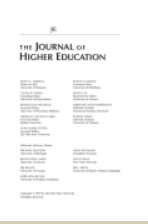
Abstract:
Despite a steady decline in available faculty tenure-track positions, future vacancies in tenure-track positions provide opportunities to diversify faculty ranks with new female faculty and faculty of color. This impending employment shift in faculty demographics may change departmental climates, pre-tenure faculty socialization processes, and professional and personal relationships between pre-tenure female faculty and faculty of color and their colleagues.
This study examines pre-tenure faculty members' perception of collegial relationships with colleagues. We primarily focus on the organizational socialization of female faculty and faculty of color, and faculty in different pre-tenure career stages. We found differences in satisfaction with collegial relationships between faculty by gender, race, and pre-tenure career stages.
New Challenges, New Priorities: The Experience of Generation X Faculty
Citation:
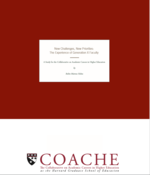
Abstract:
This study explores how Generation X (born 1964-1980) faculty are approaching their jobs, long-term careers, and work-life balance, and examines if and how the generational “clashes” reportedly arising in the workforce are being manifested in the academic environment. The study was designed to complement and build upon the coache Tenure-Track Faculty Job Satisfaction Survey by using qualitative interviews to explore many of the same themes in greater depth with a limited number of participants, and provide insights into how those themes play out in the day-to-day lives of individual faculty members. While the survey provides a snapshot of how tenure-track faculty are feeling about their current job situation, this study examines the broader context of faculty members’ long-term careers, and the interplay between their work and non-work lives.
- «
- 9 of 9
Perspectives on What Pre-Tenure Faculty Want and What Six Research Universities Provide
Citation:
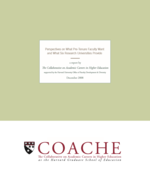
Abstract:
COACHE released this report in conjunction with the Harvard University Office for Faculty Diversity & Development. It is the result of many months of mining and synthesizing the information collected from nearly 80 interviews with pre-tenure and tenured faculty, department chairs, and senior administrators at six COACHE member campuses. Much of what is contained in this report may be all too familiar to an experienced academic administrator, but it is the first time the experiences of early-career faculty and the faculty development policies of top-tier research universities have been assembled in one place.- «
- 5 of 5
The role of citizenship status in intent to leave for pre-tenure faculty
Citation:
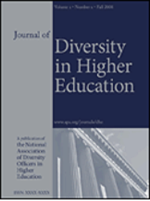
Abstract:
Using a national database, this study uses discriminant analysis to explore the role of citizenship status in determining intent to leave for pre-tenure faculty members at 4-year research universities. Of the three possible responses (intend to stay, intend to leave, and undecided), two functions emerged. The first function differentiates those who intend to stay from those who intend to leave and those who are undecided. The second function differentiates between those who intend to leave and those who are undecided.
Measures of satisfaction with workplace serve as the primary indicators of function one. Race and citizenship status are the only variables significant for function two. Demographic variables, discipline, salary, and institutional variables are not significant in either function. The variables that are significant for the entire sample are similar to those significant just for non-U.S. citizen faculty. Implications of this study for institutions include attending to departmental and institutional fit, recognition of diversity among non-U.S. citizen faculty, and working toward improving various components of satisfaction.
Examining faculty satisfaction, productivity, and collegiality in higher education: Contemporary contexts and modern methods
Citation:
Thesis Type:
DissertationAbstract:
In response to discourse surrounding faculty accountability and diversity, this dissertation describes three studies of faculty satisfaction, productivity, and collegiality in higher education. The studies employed advanced quantitative methods to analyze and interpret faculty data at four-year colleges and universities.
The first study revealed a strong, positive, and highly significant relationship between campus racial climate and faculty satisfaction at the individual level, regardless of gender, race/ethnicity, and tenure status. The second study identified five classes of faculty productivity with respect to gender, race, institutional type, and levels of faculty satisfaction.
The third study examined the relationships among faculty collegiality, job satisfaction, and turnover intentions. Significant findings indicated that faculty collegiality was strongly and positively related to job satisfaction and negatively related to turnover intentions, regardless of gender and race/ethnicity. Women faculty and faculty of color indicated lower levels of collegiality, and faculty of color reported lower job satisfaction and higher turnover intentions.
Success on the Tenure Track: Five Keys to Faculty Job Satisfaction
Citation:
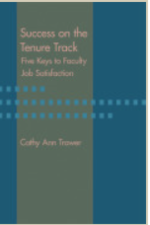
Abstract:
Landing a tenure-track position is no easy task. Achieving tenure is even more difficult. Under what policies and practices do faculty find greater clarity about tenure and experience higher levels of job satisfaction? What makes an institution a great place to work?
In 2005–2006, the Collaborative on Academic Careers in Higher Education surveyed more than 15,000 tenure-track faculty at 200 institutions. The survey was designed around five key themes: tenure clarity, work-life balance, support for research, collegiality, and leadership.
Success on the Tenure Track positions the survey data in the context of actual colleges and universities. Best practices at the highest-rated institutions in the survey—Auburn, Ohio State, North Carolina State, Illinois at Urbana-Champaign, Iowa, Kansas, and North Carolina at Pembroke—give administrators practical, proven advice on increasing employee satisfaction. Additional chapters discuss faculty demographics, trends in employment practices, creating a great workplace for faculty, and the future of tenure.
Family policies and institutional satisfaction: An intersectional analysis of tenure-track faculty
Citation:
Thesis Type:
DissertationAbstract:
Guided by an intersectional perspective, this study compares responses to the 2008 and 2009 Tenure-Track Faculty Job Satisfaction survey provided by four groups of faculty: African American women, African American men as well as white women and white men. The study examines faculty perceptions regarding the importance of family policies as related to career success, the effectiveness of family policies at the institution, and the level of satisfaction with work-life balance. The findings indicate that there are significant differences in policy perceptions and work-life satisfaction. African American women overwhelmingly indicate that eldercare policy is important to career success, while white women are more concerned with childcare policy. Significant group differences emerge in faculty assessment of childcare policy. The analysis reveals institutional-level support for care work influences overall satisfaction with the institution more than departmental support. The findings suggest care work still matters in relation to a faculty member's career advancement.
Work life balance and job satisfaction among faculty at Iowa State University
Citation:
Thesis Type:
DissertationAbstract:
This study utilized the existing database from the Iowa State University 2009-2010 Faculty Job Satisfaction Survey to explore faculty work life balance and job satisfaction among academic disciplines. This research sought to determine if (a) work life differs by academic discipline group: (b) job satisfaction differs by academic discipline, and (c) there is a relationship between faculty work life and job satisfaction and whether this relationship differs by academic discipline group, and (d) if academic discipline has a unique effect on faculty work and life balance.
The results indicated that there is a significant relationship between work life and job satisfaction. When controlling for demographic and professional experience, the result also indicated that age and climate, and culture were significant predicators for work life balance. The results also showed that female faculty have lower job satisfaction, and indicated that the level of job satisfaction was lower for hard pure disciplines than soft pure disciplines.
Success on the Tenure Track: Five Keys to Faculty Job Satisfaction
Citation:

Abstract:
Landing a tenure-track position is no easy task. Achieving tenure is even more difficult. Under what policies and practices do faculty find greater clarity about tenure and experience higher levels of job satisfaction? What makes an institution a great place to work?
In 2005–2006, the Collaborative on Academic Careers in Higher Education surveyed more than 15,000 tenure-track faculty at 200 institutions. The survey was designed around five key themes: tenure clarity, work-life balance, support for research, collegiality, and leadership.
Success on the Tenure Track positions the survey data in the context of actual colleges and universities. Best practices at the highest-rated institutions in the survey—Auburn, Ohio State, North Carolina State, Illinois at Urbana-Champaign, Iowa, Kansas, and North Carolina at Pembroke—give administrators practical, proven advice on increasing employee satisfaction. Additional chapters discuss faculty demographics, trends in employment practices, creating a great workplace for faculty, and the future of tenure.
Examining faculty satisfaction, productivity, and collegiality in higher education: Contemporary contexts and modern methods
Citation:
Thesis Type:
DissertationAbstract:
In response to discourse surrounding faculty accountability and diversity, this dissertation describes three studies of faculty satisfaction, productivity, and collegiality in higher education. The studies employed advanced quantitative methods to analyze and interpret faculty data at four-year colleges and universities.
The first study revealed a strong, positive, and highly significant relationship between campus racial climate and faculty satisfaction at the individual level, regardless of gender, race/ethnicity, and tenure status. The second study identified five classes of faculty productivity with respect to gender, race, institutional type, and levels of faculty satisfaction.
The third study examined the relationships among faculty collegiality, job satisfaction, and turnover intentions. Significant findings indicated that faculty collegiality was strongly and positively related to job satisfaction and negatively related to turnover intentions, regardless of gender and race/ethnicity. Women faculty and faculty of color indicated lower levels of collegiality, and faculty of color reported lower job satisfaction and higher turnover intentions.
International Faculty in American Universities: Experiences of Academic Life, Productivity, and Career Mobility
Citation:

Abstract:
In the past 20 years, the number of international faculty members at American universities has continued to increase rapidly. This growth is evident in data showing that the proportional representation of foreign-born faculty easily surpasses that of domestic underrepresented racial/ethnic groups. The increasing presence of international faculty members is validated using multiple data sources, and their professional experience is examined in terms of the perception of academic life, productivity, and career mobility.
The primary interest of this chapter on international faculty and their professional experiences in U.S. higher education institutions is based on the assumption that international faculty are considered to be different than domestic faculty in their academic experiences, largely due to their cultural, educational, and language backgrounds.
The Experience of Tenure-Track Faculty at Research Universities: Analysis of COACHE Survey Results by Academic Area and Gender
Citation:
Abstract:
The COACHE Faculty Job Satisfaction Survey is organized around five themes: tenure, nature of the work, policies and practices, climate, culture, and collegiality, and global satisfaction. This analysis looks at survey data for pre-tenure faculty at research universities. In particular, the analysis examined gender differences across twelve academic areas. Mean scores for each of the 83 survey dimension were ranked across all 12 academic areas.
Browse Resources by Faculty Type
Job Satisfaction Among Nursing Faculty in Canada and the United States
Citation:
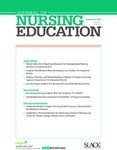
Abstract:
Higher education wants a satisfied workforce to ensure the organization reaches their stated or evolving goals; however, if faculty are dissatisfied, there can be harmful and long-term consequences on productivity and organizational outcome. This study examined nursing faculty's job satisfaction and intent to stay in universities in the United States and Canada.Women Faculty in STEM Disciplines: Experiences with the Tenure Process and Departmental Practices
Citation:
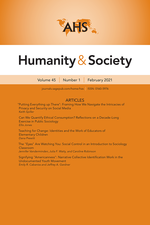
Abstract:
Using Faculty Job Satisfaction Survey data, the purpose of the study is to explore predictors of perceptions of tenure clarity for faculty in STEM and non-STEM fields. We use the gendered organization framework to examine whether for four groups of faculty (women and men in STEM and women and men in non-STEM), assessment of fairness in tenure decisions and evaluations, messages about tenure requirements, mentoring, and relationships with peers have a similar effect on their assessment of tenure clarity. Women in STEM fields are less likely to perceive the expectations for tenure as clear or to assess tenure decisions and evaluations as fair, mentoring as effective, and relationships with peers as satisfactory.College nursing faculty job satisfaction and retention: A national perspective
Citation:
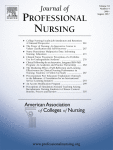
Abstract:
The need for registered nurses in the United States continues to grow. To meet this need for increased numbers of nurses, recruitment and retention of qualified nurse educators has become a priority, and job satisfaction and nursing faculties’ intent to stay have emerged as important considerations for administrators.
The purpose of this study is to analyze variables of relationships with nurse faculty job satisfaction and intent to stay from data collected throughout the United States. The Faculty Job Satisfaction Survey was employed for the purposes of this study. Over 1,350 nurse educators were included in the survey. The findings support a variety of modifiable variables that are viewed as important by nursing faculty. The strongest relationship was found to be institutional leadership. The implications can inform academic administrators seeking to retain nursing faculty.
- 1 of 2
- »
Gender and Race Differences in Faculty Assessment of Tenure Clarity: The Influence of Departmental Relationships and Practices
Citation:
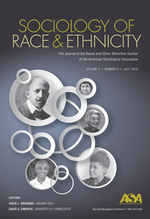
Abstract:
The authors look at how the intersection of gender and race influences pre-tenure faculty members’ perceptions of the clarity of tenure expectations. The authors also seek to identify potential predictors (assessment of mentoring, relationships with peers, feedback on progress toward tenure, and fairness in tenure decision making and evaluation) of perceptions of tenure clarity for four intersectionally defined groups, including historically underrepresented minority women (URMW). The authors use an intersectional perspective and the gendered and racialized organizations’ theoretical lens to interpret the results. The data set comes from the Faculty Job Satisfaction Survey. Findings show that compared with white men, URMW are less satisfied with their relationships with peers and with the fairness in the evaluation of their work. They are also less likely to agree that mentoring is effective, that tenure decisions are fair, and that messages about tenure are consistent.Reasonableness and clarity of tenure expectations: Gender and race differences in faculty perceptions.
Citation:
Abstract:
This dissertation studies how higher education policies and practices can affect faculty retention and proposes changes that higher education institutions need to make to retain their faculty. The first manuscript investigates the reasonableness of tenure expectations as it relates to work-life balance, the second explores whether women’s and men’s assessments of tenure-related departmental practices influence their perceptions of clarity of tenure expectations, and the third looks at how the intersection of gender and race influences faculty perceptions of clarity of tenure expectations. The dissertation uses Faculty Job Satisfaction Survey data from a sample of 2,438 tenure-track assistant professors at research universities.
Examining faculty satisfaction, productivity, and collegiality in higher education: Contemporary contexts and modern methods
Citation:
Thesis Type:
DissertationAbstract:
In response to discourse surrounding faculty accountability and diversity, this dissertation describes three studies of faculty satisfaction, productivity, and collegiality in higher education. The studies employed advanced quantitative methods to analyze and interpret faculty data at four-year colleges and universities.
The first study revealed a strong, positive, and highly significant relationship between campus racial climate and faculty satisfaction at the individual level, regardless of gender, race/ethnicity, and tenure status. The second study identified five classes of faculty productivity with respect to gender, race, institutional type, and levels of faculty satisfaction.
The third study examined the relationships among faculty collegiality, job satisfaction, and turnover intentions. Significant findings indicated that faculty collegiality was strongly and positively related to job satisfaction and negatively related to turnover intentions, regardless of gender and race/ethnicity. Women faculty and faculty of color indicated lower levels of collegiality, and faculty of color reported lower job satisfaction and higher turnover intentions.
Career Stage Differences in Pre-Tenure Track Faculty Perceptions of Professional and Personal Relationships with Colleagues
Citation:

Abstract:
Despite a steady decline in available faculty tenure-track positions, future vacancies in tenure-track positions provide opportunities to diversify faculty ranks with new female faculty and faculty of color. This impending employment shift in faculty demographics may change departmental climates, pre-tenure faculty socialization processes, and professional and personal relationships between pre-tenure female faculty and faculty of color and their colleagues.
This study examines pre-tenure faculty members' perception of collegial relationships with colleagues. We primarily focus on the organizational socialization of female faculty and faculty of color, and faculty in different pre-tenure career stages. We found differences in satisfaction with collegial relationships between faculty by gender, race, and pre-tenure career stages.
The Experience of Tenure-Track Faculty at Research Universities: Analysis of COACHE Survey Results by Academic Area and Gender
Citation:
Abstract:
The COACHE Faculty Job Satisfaction Survey is organized around five themes: tenure, nature of the work, policies and practices, climate, culture, and collegiality, and global satisfaction. This analysis looks at survey data for pre-tenure faculty at research universities. In particular, the analysis examined gender differences across twelve academic areas. Mean scores for each of the 83 survey dimension were ranked across all 12 academic areas.
New Challenges, New Priorities: The Experience of Generation X Faculty
Citation:

Abstract:
This study explores how Generation X (born 1964-1980) faculty are approaching their jobs, long-term careers, and work-life balance, and examines if and how the generational “clashes” reportedly arising in the workforce are being manifested in the academic environment. The study was designed to complement and build upon the coache Tenure-Track Faculty Job Satisfaction Survey by using qualitative interviews to explore many of the same themes in greater depth with a limited number of participants, and provide insights into how those themes play out in the day-to-day lives of individual faculty members. While the survey provides a snapshot of how tenure-track faculty are feeling about their current job situation, this study examines the broader context of faculty members’ long-term careers, and the interplay between their work and non-work lives.
Clear as Mud: Promotion Clarity by Gender and BIPOC Status Across the Associate Professor Lifespan
Citation:
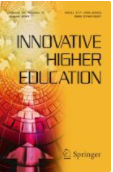
Abstract:
Mid-career faculty members often seek to advance to the highest faculty rank of full professor, but research suggests women and Black, Indigenous and Other People of Color (BIPOC) faculty face inequitable patterns in advancement to the full professor rank. This study focuses on associate professors’ perceptions of promotion clarity, or the degree to which they are clear about the processes and criteria for advancing to the full professor rank.Success After Tenure: Lessons in Engaging Midcareer Faculty
Citation:
Abstract:
Mid-career faculty actively seek professional satisfaction and personal well-being in their careers at the departmental and institutional level. However, a growing body of research tells us that the policies and practices in place at colleges and universities do not always support this goal. This webinar, “Success After Tenure: Lessons in Engaging Mid-Career Faculty,” offers an inside take on the themes of the book Success After Tenure: Supporting Mid-Career Faculty and provide real-world best practices from practitioners in the field.
Full Text
Watch the Recording
Download the presentation slides
Evidence-Based Faculty Development: The COACHE Research-Practice Partnership
Citation:
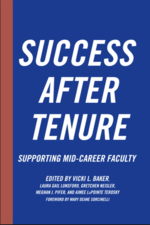
Abstract:
This book brings together leading practitioners and scholars engaged in professional development programming for and research on mid-career faculty members, those tasked with being the next generation of faculty leaders and mentors on their respective campuses, with little to no supports to do so effectively.
The stories, data, and resources shared in this book will provide inspiration—and reality checks—to administrators, faculty developers, and department chairs charged with supporting their faculties as they engage in academic work. Topics include faculty development for formal and informal leadership roles; strategies to support professional growth; teaching and learning as a form of scholarship; and strategies to recruit, retain, and promote underrepresented faculty populations.
While the authors acknowledge that mid-career faculty members face numerous challenges, this collection offers a counter narrative by looking at ways that faculty and/or institutions can assert themselves to find opportunities within challenging contexts.
- 1 of 5
- »
Personal and Institutional Predictors of Work-Life Balance among Women and Men Faculty of Color
Citation:
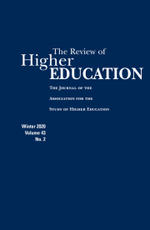
Abstract:
This study examines predictors of perceived work-life balance among women and men faculty of color using data from the Collaborative on Academic Careers in Higher Education (COACHE). Asian American men faculty report higher perceived work-life balance, while African American women faculty report lower perceived work-life balance as compared to other faculty members. Findings from multivariate analyses show that the strongest, most consistent positive predictor of perceived work-life balance was the faculty perception that the institution does what it can to make personal/family obligations and an academic career compatible. The findings offer important implications for institutional and departmental climate and policy.The possibility of promotion: How race and gender predict promotion clarity for associate professors
Citation:
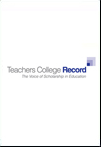
Abstract:
Past studies have strongly suggested that equity issues affect advancement through the academic pipeline. This study uses cross-institutional results from the 2010 through 2012 Faculty Job Satisfaction Surveys to offer analysis and potential solutions for the problem.
The study asks whether cultural taxation in the form of heavy service and advising—often associated with underrepresented minority faculty and women faculty—is a factor in advancement through the academic pipeline, and also examines the influence of ideal-worker norms and work/family demands on perceptions of promotion clarity. The analysis suggests that the factors associated with lack of clarity about promotion are more structural than individual.
Gender and Race Differences in Faculty Assessment of Tenure Clarity: The Influence of Departmental Relationships and Practices
Citation:

Abstract:
The authors look at how the intersection of gender and race influences pre-tenure faculty members’ perceptions of the clarity of tenure expectations. The authors also seek to identify potential predictors (assessment of mentoring, relationships with peers, feedback on progress toward tenure, and fairness in tenure decision making and evaluation) of perceptions of tenure clarity for four intersectionally defined groups, including historically underrepresented minority women (URMW). The authors use an intersectional perspective and the gendered and racialized organizations’ theoretical lens to interpret the results. The data set comes from the Faculty Job Satisfaction Survey. Findings show that compared with white men, URMW are less satisfied with their relationships with peers and with the fairness in the evaluation of their work. They are also less likely to agree that mentoring is effective, that tenure decisions are fair, and that messages about tenure are consistent.Browse Resources by Type
Prioritizing Responsibility as a New Provost
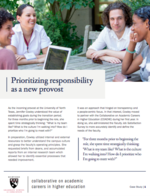
Abstract:
During her first year as provost at The University of North Texas, Jennifer Cowley made an effort to improve data transparency on campus. Alongside an internal platform to provide data to deans and department heads, she partnered with the Collaborative on Academic Careers in Higher Education to administer the Faculty Job Satisfaction Survey and develop a clear sense of faculty needs. Cowley found that the data, as well as collaborative relationships with new colleagues, helped her frame the critical conversations of her first year and identify key areas for change. The university plans to administer the survey every three years to track its progress.
Climate Change: Creating Space for Interdepartmental Problem Solving at Skidmore College
Citation:
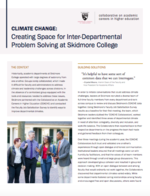
Abstract:
Historically, academic departments at Skidmore College operated with large degrees of autonomy from one another. Groups rarely collaborated, which made it difficult for faculty and administrators to address climate and leadership challenges across divisions. In the absence of a centralized group equipped with the tools and resources needed to address these issues, Skidmore partnered with the Collaborative on Academic Careers in Higher Education (COACHE) and conducted the Faculty Job Satisfaction Survey to identify ways to improve departmental climates.
Using Skidmore’s survey results as a baseline for their first meeting, the team, which Skidmore leaders dubbed the ‘COACHE Collaborators’, worked together to identify three areas of departmental climate in need of attention: collegiality, diversity and inclusion, and work-life balance.
- «
- 2 of 2
The Art of Diversity: A Chronicle of Advancing the University of California Faculty through Efforts in Diversity, Equity, and Inclusion, 2010–2022
Citation:
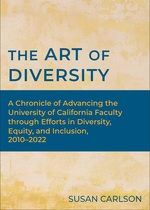
Abstract:
In The Art of Diversity: A Chronicle of Advancing the University of California Faculty through Efforts in Diversity, Equity, and Inclusion, 2010–2022, Susan Carlson details the University of California’s systemwide efforts to increase the diversity of its faculty during her tenure as Vice Provost, UC Office of the President. It tells the story of a remarkable alignment of California stakeholders—from the UC Regents and University leaders to the Academic Senate and the California legislature, from small faculty teams to multicampus coalitions—and how they worked to create a 21st-century faculty that reflects the diversity of California. This chronicle’s central focus is on a community of practice dedicated to excellence and equity. Efforts began with a program focused on finding new ways to collect data on faculty recruitment and create multicampus discussions on key topics like mentoring, intersectional racial and gender identities, workplace climate, and statements on diversity, equity, and inclusion. These efforts continued with a novel interactive theater program for department chairs and deans. The capstone effort, Advancing Faculty Diversity, provides opportunities to pilot new ways to recruit and sustain inclusive and equitable academic communities.
Carlson addresses this central academic issue: how to build a faculty that is different from the past not only in its gender and racial makeup, but also in its research methodologies, transdisciplinary partnerships, and multimodal pedagogies.
Job Satisfaction Among Nursing Faculty in Canada and the United States
Citation:

Abstract:
Higher education wants a satisfied workforce to ensure the organization reaches their stated or evolving goals; however, if faculty are dissatisfied, there can be harmful and long-term consequences on productivity and organizational outcome. This study examined nursing faculty's job satisfaction and intent to stay in universities in the United States and Canada.Cross-cultural mentoring in higher education: the use of a cultural identity development model
Citation:
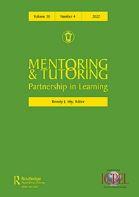
Abstract:
This article examines the role that cultural identity development plays in understanding cross-cultural mentoring encounters between White faculty and faculty of color. The authors present the components of a conceptual framework for developing mentoring approaches that consider a person’s cultural identity stage of development. Using a systematic approach, the authors consider the fundamental principles of cultural identity development theory combined with higher education contextual conditions, resulting in an approach by which mentors and protégés could govern their interactions. The article concludes with implications for mentoring program administrators, faculty, and leaders in higher education.- 1 of 18
- »
COVID-19 Impact Study: Technical Report
Citation:
Abstract:
The findings from a series of statistical analyses present compelling evidence that the disruption to campus operations caused by the coronavirus (COVID-19) in March 2020 impacted faculty perceptions of some aspects of their campus environment. This impact was felt across all institutions that participated in the COACHE Faculty Job Satisfaction Survey (JSAT) for a subset of JSAT benchmarks and specific items. At the same time, some benchmarks and most items were unaffected. The majority of the benchmarks and items that were impacted concerned leadership, governance, and decision-making. Additional analyses of the differences between benchmark scores with and without the presence of post-disruption responses suggest that the degree of change with the inclusion of post-disruption responses is negligible in practical application and does not warrant additional data cleaning for valid interpretation of report findings.Selected Dimensions of the Faculty Workplace Experience
Citation:
Abstract:
In conjunction with the AAC&U Annual Meeting, COACHE is providing access to digital spreadsheets summarizing results from its Faculty Job Satisfaction Survey, including responses from approximately 43,000 faculty at 2- and 4-year colleges and universities. COACHE Summary Tables 2019 provides responses organized by major Carnegie Classification and disciplinary groups, then by faculty rank (and tenure status), race/ethnicity, or gender. The following tables were extracted from COACHE Summary Tables 2019 for use in our discussion.COACHE Summary Tables 2019: Selected Dimensions of the Faculty Workplace Experience
Citation:
Abstract:
These summary tables include data from the 2019 Faculty Job Satisfaction Survey, focusing on the faculty workplace experience, with data presented by institution type, discipline, rank (with tenure status), race/ethnicity, and gender. Survey dimensions shown in the summary tables include questions about the nature of faculty work, facilities and family resources, interdisciplinary work, tenure clarity, promotion, and shared governance.Full Text
Access the 2019 summary tables
- 1 of 3
- »
Examining the Impacts of COVID-19 on Faculty Retention & Exit
Citation:
Abstract:
For the last five years, the Collaborative on Academic Careers in Higher Education (COACHE) has been conducting the Faculty Retention and Exit Survey to gain a deeper understanding of the academic work environment by examining faculty mobility. In spring 2020, we added three COVID-19-related questions to the survey to capture the early effects of the pandemic.
In this webinar, Doctoral Fellow, Mai H. Vang, presents findings from the responses to those questions, which captured nine themes, including disruption of research, disconnection due to remote work, and inequities in the pandemic’s impact on particular faculty.
Download the full report of our findings and presentation slides
Full Text
Assessing the Needs of Part-Time Faculty: Lessons Learned from the University at Buffalo
Citation:
Abstract:
According to the American Association of University Professors (AAUP), approximately 40% of all faculty across all institutional types are now part-time. This subset of adjunct faculty is fulfilling a critical role in the higher education landscape, yet the variability of these appointments makes it exceedingly difficult to assess their needs and, ultimately, provide adequate support.
In 2017, COACHE partners at the University at Buffalo set out to address this knowledge gap by adapting the Faculty Job Satisfaction Survey to suit the needs of their part-time faculty. In this webinar, Robert Granfield and Tilman Baumstark will share the challenges faced and lessons learned, both from their methodology and from their faculty, throughout this endeavor.
Success After Tenure: Lessons in Engaging Midcareer Faculty
Citation:
Abstract:
Mid-career faculty actively seek professional satisfaction and personal well-being in their careers at the departmental and institutional level. However, a growing body of research tells us that the policies and practices in place at colleges and universities do not always support this goal. This webinar, “Success After Tenure: Lessons in Engaging Mid-Career Faculty,” offers an inside take on the themes of the book Success After Tenure: Supporting Mid-Career Faculty and provide real-world best practices from practitioners in the field.
Full Text
Watch the Recording
Download the presentation slides
- 1 of 2
- »
Faculty Departure and Retention at Small Liberal Arts Colleges
Citation:
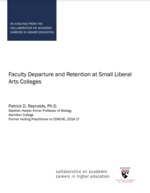
Abstract:
Voluntary faculty departures can often be prevented, but a lack of common exit procedures have hindered institutions’ ability to create proactive practices of faculty retention and instead harbor reactive tendencies with little positive outcome. Through interviews with 22 CAOs at liberal arts colleges, Patrick D. Reynolds, former Visiting Practitioner to COACHE, discovered partner employment and career choice were the two most prominent reasons for departures. Outliers also revealed that work and social environments, especially for faculty members of minority groups, often played a role in dissatisfaction.
Effective Academic Governance: Five Ingredients for CAOs and Faculty
Citation:
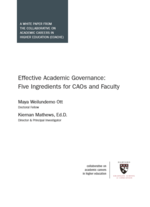
Abstract:
The COACHE research-practice partnership is designed to enact organizational change for the benefit of faculty and, by extension, the institution. But does every college's system of shared governance have what it takes to meet their own or, indeed, higher education’s most pressing challenges? This white paper looks beyond the rhetoric toward a more differentiated understanding of the ingredients of effective academic governance. Ott and Mathews offer a five-factor framework grounded in the literature, developed from interviews, and, now, tested in a survey of thousands of faculty. The report concludes with advice for assessing and fostering the qualities of “hard” and “soft” governance practices essential to sustainable change in the “real world” decision-making of committees, assemblies, senates, councils, and unions.Benchmark Best Practices: Tenure and Promotion
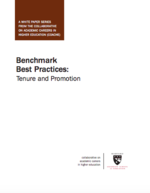
Abstract:
The COACHE surveys of college faculty produce data that are both salient to full-time college faculty and actionable by academic leaders. The survey items are aggregated into 20 benchmarks representing the general thrust of faculty satisfaction along key themes. This white paper discusses the themes of tenure policies, tenure clarity, and promotion.
Administrators and faculty alike acknowledge that, at most institutions, the bar to achieve tenure has risen over time. While it is impossible to eliminate anxiety from the minds of all pre-tenure faculty members, or the pressures exerted on their lives en route to tenure, academic leaders can improve the clarity of tenure policies and expectations without sacrificing rigor. And while the academy has recently improved many policies for assistant professors (e.g., research leave; stop-the-tenure-clock; part-time tenure-track options), it has done far less for associate professors. Ideas have emerged from COACHE research on tenured faculty.
- 1 of 5
- »

